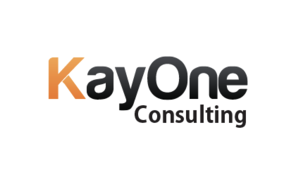22 Basic Fundraising Terms that Every Entrepreneur Must Know
Fundraising terms can be really scary to understand and implement, particularly for an aspiring entrepreneur. However, it is important to have a clear understanding of the basic fundraising terms if you are going to represent yourself and your business in front of the expert investors and fundraising companies. We have listed some of the most basic yet essential fundraising terms that you should know to deal with prospective investors effortlessly.
#1 Accredited Investor
Accredited investors are sophisticated investors concerning their income and net worth. Entrepreneurs looking to publicly solicit investors and raise outside money are limited to accredited investors. Who you can raise capital from will be determined by the regulations you file and the type of fundraising you do.
#2 Investor Updates
An investor update is a powerful component used by entrepreneurs to bring in prospective investors, keep them engaged, and get additional funding and help.
#3 Anti-Dilution Protection
Anti-dilution protection is a clause in a contract created to protect investors from the dilution of their equity or shares when other investors purchase stock in a company. This is usually triggered when there is a “down-round” (i.e. when stock is issued at a valuation lower than what it was issued previously)
#4 Storytelling
Storytelling is one of the most prominent entrepreneurial skills that convey the purpose, background, ideology, mission, and vision of a business. In business, nothing is solely based on logic. Storytelling makes your company stand out. A good story can help you get funded.
#5 Capitalization Table
A capitalization table or cap table is a breakdown of how much shares in a company is owned by specific individuals or groups. It is demonstrated in a table format and helps in clarifying the ownership percentage.
#6 Angel Investor
An angel investor is a company or an individual who prefers funding pre-seeded or seed-stage businesses and startups. The funding amount can range from $10,000 to $250,000, or sometimes more.
#7 Super Angel
A Super Angel is an angel investor who is quite active in the market, making more investments, and writing bigger checks. The funding amount is essentially higher as compared to what a regular angel investor offers. It can range from $250,000 to $1 million.
#8 Common Stock
Common stock represents company ownership. It allows the stock owners to have influence over the serving directors and vote on corporate policy. If a sale or liquidation occurs, the common stock owner gets paid after preferred stockholders.
#9 Convertible Note
A convertible note is actually a loan with different features. This type of funding includes a loan that can be converted into equity if the investment is not paid off. The investment amount comes with an interest rate and a cap on the valuation.
#10 Financial Forecast
A financial forecast or financial projection is a prediction that estimates the income and growth potential of a business over a period of time. The prediction is made based on market research, and the existing business model.
#11 Lead Investor
A lead investor is someone who offers real funding during each investment stage. When multiple investors invest in the same round, there is often a lead investor who takes charge of the documentation, due diligence and other paperwork.
#12 Liquidation Preference
Liquidation preference is a clause in an agreement that specifies who will get paid first if the company they had invested in is sold or liquidated. In many cases, this clause allows the investors to get paid even before the company’s owner. This is a clause preferred by VCs to reduce the risk of investment.
#13 Elevator Pitch
For a startup or an entrepreneur, an elevator pitch is their first introduction to an investor. This is how entrepreneurs pitch their business idea to potential investors. Whether or not they buy your idea depends on how convincing you sound. You may have to crunch some numbers and provide financial forecasts as well.
#14 Preferred Stock
Preferred stock is a type of equity that has priority over common stock. Simply put, preferred stocks have a higher claim on earnings and assets. Its model works based on preference when the dividends are paid out to shareholders. Preferred stock is a common security that is used in early-stage start-ups, because of this liquidity preference over common stock holders.
#15 Executive Summary
An executive summary is an abstract or a resume of your business plan. Investors prefer reviewing executive summaries over actual business plans because, firstly, it saves time, and secondly, investors get the idea of whether or not to invest in a particular business.
#16 Runway
The runway is a term used for startups that tells how long they have left before they run out of money. At a business fundraising, each round requires entrepreneurs to collect enough so that they can thrive all the rounds and get to the next raise. It is a constant cycle, and you are advised to raise early enough so that you don’t run short on runway.
#17 Acquihire
Acquihire is an exit strategy that an investor creates at the time of buying your talent and team.
#18 Term Sheet
A term sheet is a summary of an offer that a potential investor makes to a startup. It contains all the terms and conditions based on which the investor is willing to invest in your company. Entrepreneurs are always free to negotiate these terms or shop around.
#19 IPO
IPO or initial public offering is an exit strategy, which makes the company stock to the general public. Basically, when your company goes public, people can actually buy your stocks and shares.
#20 Milestone
A milestone is an achievement or a marker that entrepreneurs set at the beginning of a business. For example, if you put a milestone to double your revenue in the next two years and achieve it, it is a benchmark achievement. And if you fail to do so, you will find it challenging to attract more investors and retain the existing ones.
#21 Valuation
Valuation is how much your business is valued at or tells the net worth of your company. The lead investor sets the net worth based on pre-money and post-money valuation.
#22 Burn Rate
Burn rate is a company’s monthly expenses. It allows the entrepreneur to determine the right fundraising amount. For example, if your company’s monthly expenses are $10,000 and you have established that you will reach your next milestone in 12 months, you will have to raise a little over $120,000.
Conclusion
These are the most basic fundraising terms that every business owner, whether an established business or a startup, should know. Familiarizing yourself with these key fundraising terms will give you an idea of how things work in this sector.



